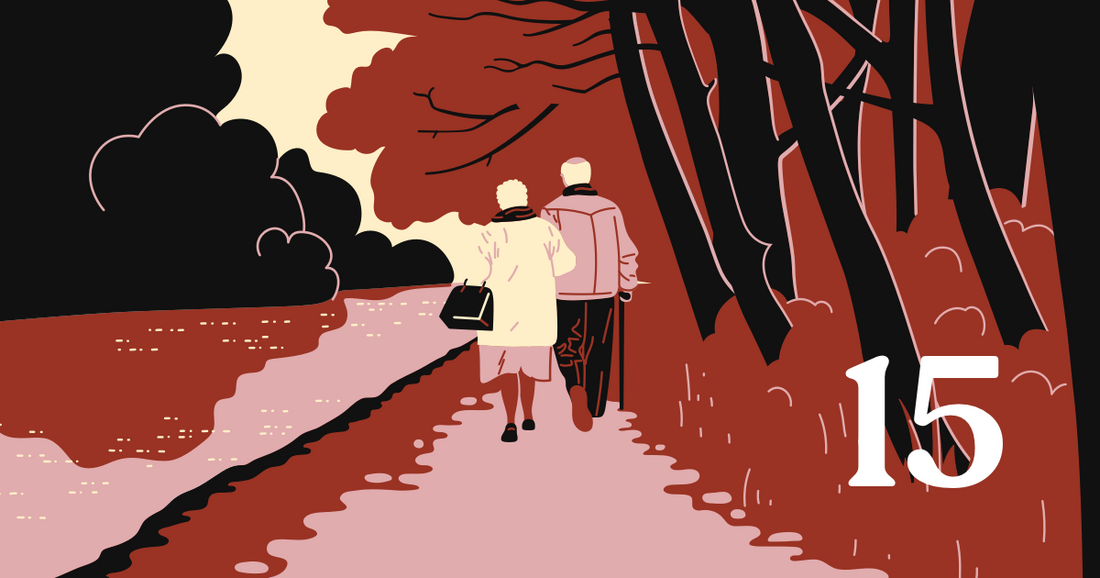Dear friend,
From my personal journey of rebuilding my relationship with my parents, and from talking to countless others about their healing journeys, there seem to be three distinct ways people experience improvement in their relationships with their loved ones.
Which one resonates the most with you?
1. 💪 One: Taking Responsibility for Our Reactions
This was what I primarily focused on for the first year and a half of my journey. I came to realize that I could never make my parents any different, no matter how much I wanted to or believed it'd be for the better. I could only control the way I showed up.
So I simply focused on showing up as the version of myself that I would be proud of. I did whatever I could to no longer revert to my teenage tendencies, and whenever I'd slip, I apologized.
This meant anytime I felt the urge to raise my voice, to be short with my parents, or talk in any way other than neutral or loving, I'd excuse myself to self-regulate.
I would meditate, journal, talk to a friend, punch/scream into a pillow, or just breathe so I could calm my nervous system.
This was one of the hardest things I have ever done, but also one that probably made the biggest difference in improving my relationship with my parents.
2. 🫂 Two: Creating Novel, Disconfirming Experiences
After years of tensions, conflicts, and unresolved trauma, our bodies are often on high alert whenever we speak to our loved ones, expecting drama.
Our nervous systems need proof that things can change for the better. We need new, emotionally disconfirming experiences that prove it is possible to relate to a loved one neutrally or positively.
We can create these disconfirming experiences by asking questions to spark new conversations, starting with easy, lighthearted, nonthreatening questions.
The more of these conversations we have, the more we feel calm about simply talking. It's like adding safety cushions to our nervous system. That dread of picking up the phone or seeing a loved one in person slowly fades.
Eventually, even the hardest conversations feel easier because our understanding of the other person's inner world has expanded, and empathy has deepened.
Parents Are Human is simply one tool that could help create some of these experiences. Introducing a new way of expressing love, like hugging is another way.
3. 💔 Three: Going Through a Dark Night of the Soul
The "dark night of the soul" is a dark period, often triggered by some external disastrous event, that causes a collapse of our perceived meaning in life.
Although the creation of this experience is typically out of our control—a freak accident, a sudden health crisis, an unexpected death of a loved one, a global pandemic—it is vital that we remember that we'll always have control over how we respond to what happens.
Many of us have gone into this dark place before and many have emerged with a far greater sense of what truly matters in life.
If my world didn't fall apart when I hit the lowest point in my life, I wouldn't have embarked on this journey to heal my relationship with my parents.
I don't think we're ever fully prepared for a tragedy to happen. If you're going through one, I hope you remember that these dark times can also be openings for people to
come closer together, have courageous conversations, reach out for help, love in new ways, and be loved.
4. 💬 Question of the Week (in 7 languages)
English:
If you could restore one relationship, which one would you choose?
Simplified Chinese:
如果可以修复一段关系,你会选择哪一段?
Rúguǒ kěyǐ xiūfù yī duàn guānxì, nǐ huì xuǎnzé nǎ yī duàn?
Traditional Chinese:
如果可以修復一段關係,你會選擇哪一段?
Rúguǒ kěyǐ xiūfù yī duàn guānxì, nǐ huì xuǎnzé nǎ yī duàn?
Vietnamese:
Nếu ____ có thể chữa lành lại một mối quan hệ, ____ sẽ chọn mối quan hệ nào?
Spanish:
Si pudiera restaurar una relación, ¿cuál escogería? (Formal)
Si pudieras restaurar una relación, ¿cuál escogerías? (Informal)
Korean:
제일 회복하고 싶은 대인 관계는 어떤 관계예요?
jeil hoebokago sipeun daein gwangyeneun eotteon gwangyeyeyo?
Filipino/Tagalog:
Ano pong relasyon ang pinakagusto ninyong buuing muli?
Much love,
Joseph

